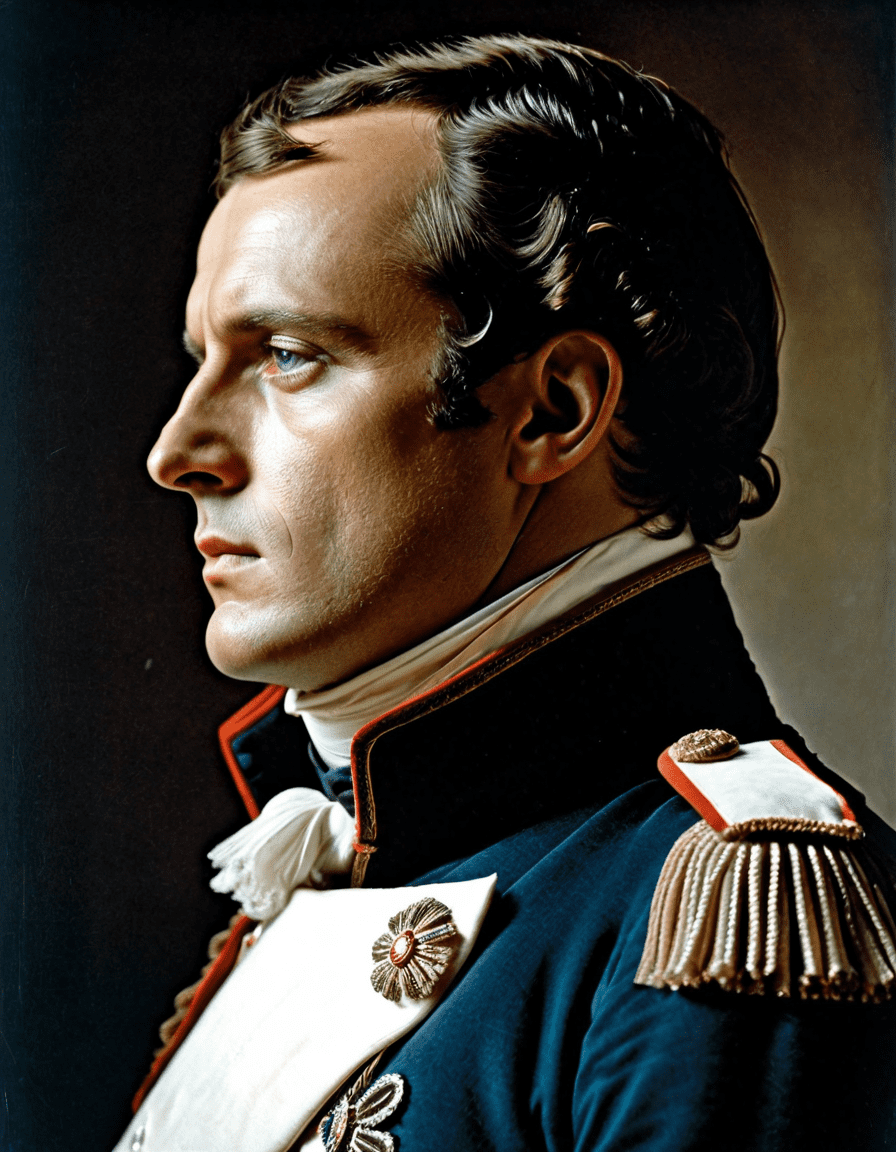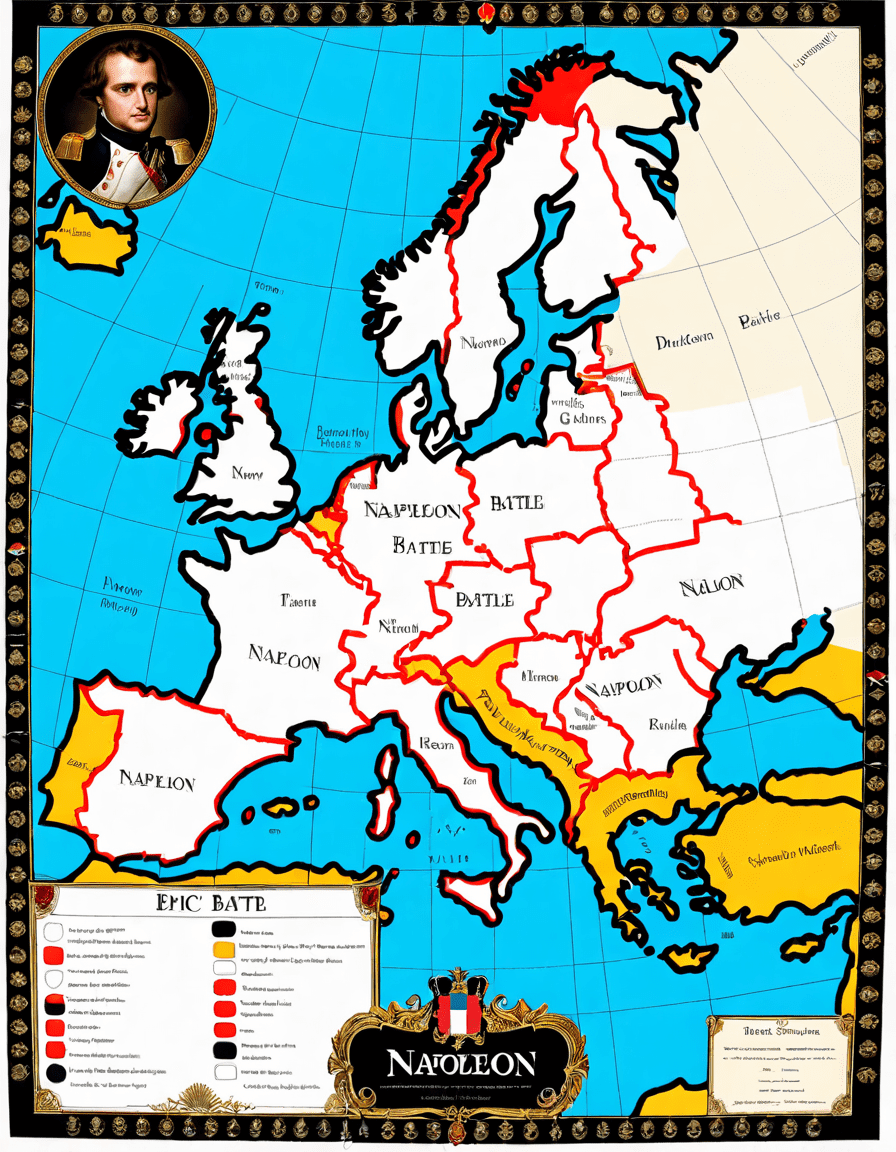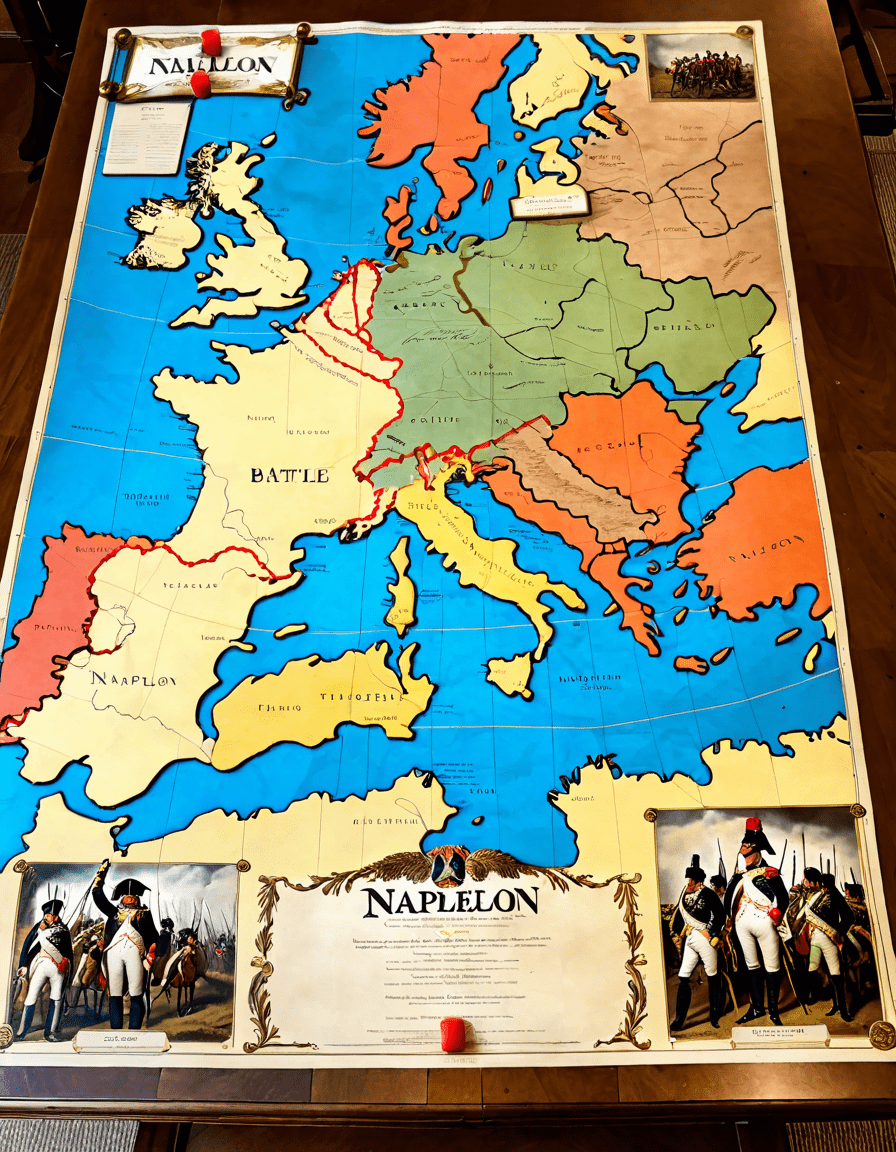The fervor surrounding the release of the latest Napoleon movie, directed by the legendary Ridley Scott, has reignited public interest in one of history’s most enigmatic figures. This cinematic portrayal doesn’t just reflect the complexities of Napoleon Bonaparte; it plunges us into the fiery depths of ambition and glory that marked his life. Through a grand narrative, filled with the thrill of conquest and the weight of personal losses, this film offers a modern lens on a legend whose influence lingers in today’s storytelling and culture.
Scott, best known for his ability to bring epic tales to life with emotional depth, delivers a visually stunning experience that blends historical ethos with personal drama. If you thought the tales of old were relegated to textbooks, think again! This Napoleon movie promises to pull you right into the action, stirring up motivations that resonate with even the most jaded cinephile.
But what makes this cinematic adventure truly captivating? Let’s dive into the top dramatic elements that make Ridley Scott’s Napoleon movie a must-see!

Top 5 Dramatic Elements in the Napoleon Movie
The Napoleon movie breaks away from the usual hero-villain narrative, offering a nuanced portrayal of Bonaparte. Joaquin Phoenix’s portrayal captures him as a man of ambition, wrestling with inner demons and vulnerabilities. This complexity means we see him not just as a conqueror but as a deeply flawed human being grappling with the ramifications of his hunger for power.
Scott employs grand visuals reminiscent of other legion-style films like Gladiator and the stunning aesthetics in 300. The cinematography not only captures colossal battle scenes but also intimacy in Napoleon’s internal struggles. This technique allows the viewer to fully immerse themselves in the era while drawing connections to modern spectacles, making you feel like you’re on the frontlines of history.
When it comes to historical films, the balancing act of accuracy and dramatized storytelling is crucial. Scott’s vision offers a glimpse into personal and political upheaval, especially in Napoleon’s campaigns and his relationship with Josephine. While some might argue over the liberties taken, it echoes the artistic interpretations seen in Wicked movie adaptations, showcasing the complexity of rendering history for dramatic impact.
This film vigorously explores the intoxicating allure of power and how ambition can morph moral boundaries. Sounds familiar, right? It resonates deeply with present-day politics, offering commentary on the leaders of yesterday and today. Just as seen in The Social Network, the cost of ambition unfolds a timeless narrative that continues to enlighten audiences across the generations.
Believe it or not, this Napoleon movie could teach us a thing or two about perseverance, much like the Sonic movie! While Sonic races against enemies, Napoleon weaves his way through battles, similarly determined to prove himself. Both tales speak to personal growth amid a host of challenges, showcasing that the pursuit of greatness is universal, whether you’re a legendary general or a speedy blue hedgehog.

The Cultural Impact of Napoleon on Modern Cinema
The Napoleon movie isn’t just a tale of a man; it’s a peek into society’s ongoing fascination with monumental historical figures. Films like Gladiator and Braveheart have paved the way for experiences that blend authenticity with dramatic storytelling, making history relatable and captivating. Just like the Wicked movie reinterprets classic narratives for modern audiences, this film mirrors the ongoing struggles of leadership and the ambitions that drive individuals in our current socio-political climate.
These epic narratives offer more than just storytelling; they resonate with our own challenges and aspirations. With cinematic portrayals that shine a light on ambition’s personal costs, the Napoleon movie adds a fresh chapter to the genre. It’s a powerful reminder of how history offers valuable lessons that echo throughout time.
Forward-Thinking Narrative: What the Future Holds for Historical Films
Looking ahead, the reception of the Napoleon movie signifies a mounting appetite for rich, nuanced historical narratives. A blending of high stakes with personal ambition becomes a blueprint for future projects. Filmmakers might take cues from successes like the Sonic movie’s energetic storytelling and the introspective depth seen in adaptations of familiar tales, such as the Wicked movie.
Historical narratives possess the unique capacity to resonate with our contemporary struggles, demonstrating that ambition and conflict are as relevant today as they were centuries ago. As filmmakers harness the power of storytelling, the Napoleon movie stands as a testament to the impact of history on film. We’re in for an exciting ride!
In conclusion, the Napoleon movie opens up a treasure chest of possibility for the future of cinema. It stands elegant yet powerful, enthralling audiences and beckoning them to reflect on the nature of ambition, glory, and the eternal quest for significance in the fabric of human history. With each new tale, might we discover more about ourselves and our aspirations, creating a captivating cinematic tapestry of our collective journey? Film lovers, get ready—this is just the beginning!
For those interested in exploring topics beyond cinema, check out this piece on why Is homelessness a problem or dive into lifestyle articles like the one on a second hand bag Withher age. And, of course, stay tuned to Cinephile Magazine for all your movie news!
Napoleon Movie: A Cinematic Epic on a Legendary Scale
The Making of a Grand Vision
In the fascinating journey of bringing the Napoleon movie to life, filmmaker Ridley Scott faced a series of challenges reminiscent of the ambitious maneuvers of the storied general himself. Did you know that filming took place in various locations, including St. Moritz, Switzerland? This choice not only provided breathtaking winter landscapes but also brought a touch of historical authenticity to battle scenes, echoing the sort of stunning settings found in the Alien movie universe. Speaking of authenticity, Scott is known for his attention to period detail, much like what we saw in the Elvis movie, ensuring that even the tiniest props and costumes stay true to the time of Napoleon Bonaparte.
A Star-Studded Cast
Joaquin Phoenix takes on the lead role, drawing parallels to performances in horror classics like Fright Night, where actors bring dramatic flair that captivates audiences. Interestingly, the Napoleon movie wasn’t just about the soldier; it also dives into his personal life, shedding light on his relationship with Josephine. Did you know that the film reveals the tender side of an otherwise formidable leader? This exploration enriches the storyline, making viewers keenly aware of both the ambitious and vulnerable aspects of his character—much like how Bird Box captivated audiences by blending dread with deeply personal stories.
Cultural References and Statutes
Amidst all this cinematic wonder, current events have found their way into discussions about how films reflect society. For instance, a recent California bill aimed at banning Skittles due to health concerns can ignite conversations resembling the fierce debates during Napoleon’s rule. These historical echoes resonate powerfully, reminding us that leadership decisions often ripple through time. With the Napoleon movie, Scott digs deep to explore what ambition and glory look like—not just through the lens of epic battles but also in human relationships, much like modern societal issues we face when navigating trends like the Vline song that ran through pop culture. This multifaceted approach keeps viewers engaged and reflective long after the credits roll, proving that a film can be a powerful commentary on past and present alike.





